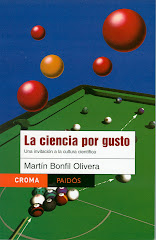by Martín Bonfil Olivera
Published on Milenio Diario, September 3, 2008
Common sense prevailed. After considering many arguments, eight ministers from the Mexican Supreme Court voted to declare that the reforms to the Criminal Code and the Health Law of Mexico City that legalize abortion up to 12 weeks of pregnancy are constitutional.
The reforms are thus safe from attacks, and the way is open for other states to modify their laws to extend women's liberties throughout the Country.
Opponents to the legalization insisted in reducing the debate to a conflict between women's and embryo's rights. The ministers recognized that this was a fallacy: life in development is worthy of protection, but its not yet a human life. Women's rights are the only ones at risk here.
In the debate, scientific knowledge about the process of gestation and the necessary conditions for considering that there is human life –particularly, the existence of a central nervous system, together with considerations about the difficult situation of women that opt for abortion, properly developed and functional– was central for reaching the decision that we now celebrate.
The important of science in controversies that affect our society will keep growing. We already have discussions related with health and sexuality –transsexuals, stem cell research, euthanasia, cloning… and more to come: alternative energy (solar, geothermal, nuclear), contamination garbage handling and toxic waste, transgenic crops…
In all of these cases, some decisions have to be taken. Only people who understand, at least in principle, the relation between science and technology with each of these issues can have a responsible opinion. If the average citizen does not have a minimum of scientific culture, the discussion will be left in the hands of experts and politicians.
It is urgent to democratize scientific and technical knowledge: to put it in the hands of the public. The legalization of abortion was achieved in great part thanks to the information and education campaigns launched by its defenders. In debates to come, the job of scientific journalists, science writers and educators will be crucial to allow our citizens to participate in the decision making that will affect society.
Let's not forget: science is also part of democracy.
(translated by Adrián Robles Benavides)
To receive Science for pleasure weekly
in your email, subscribe here!





No comments:
Post a Comment